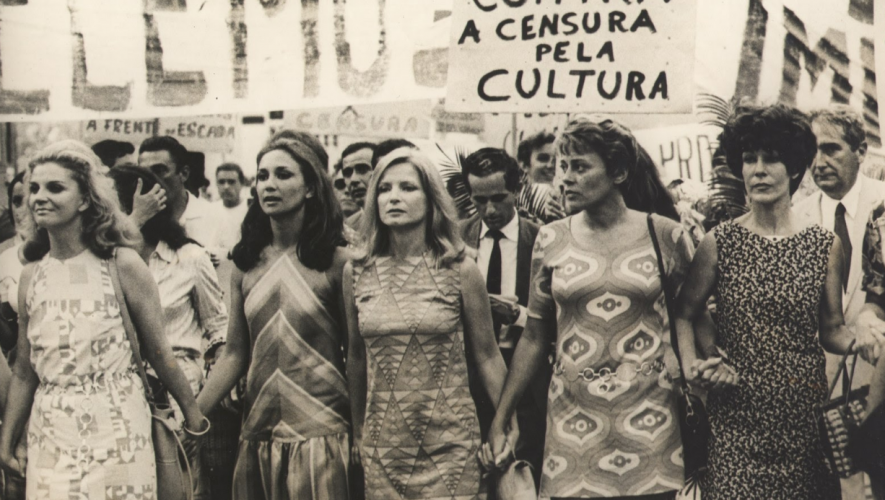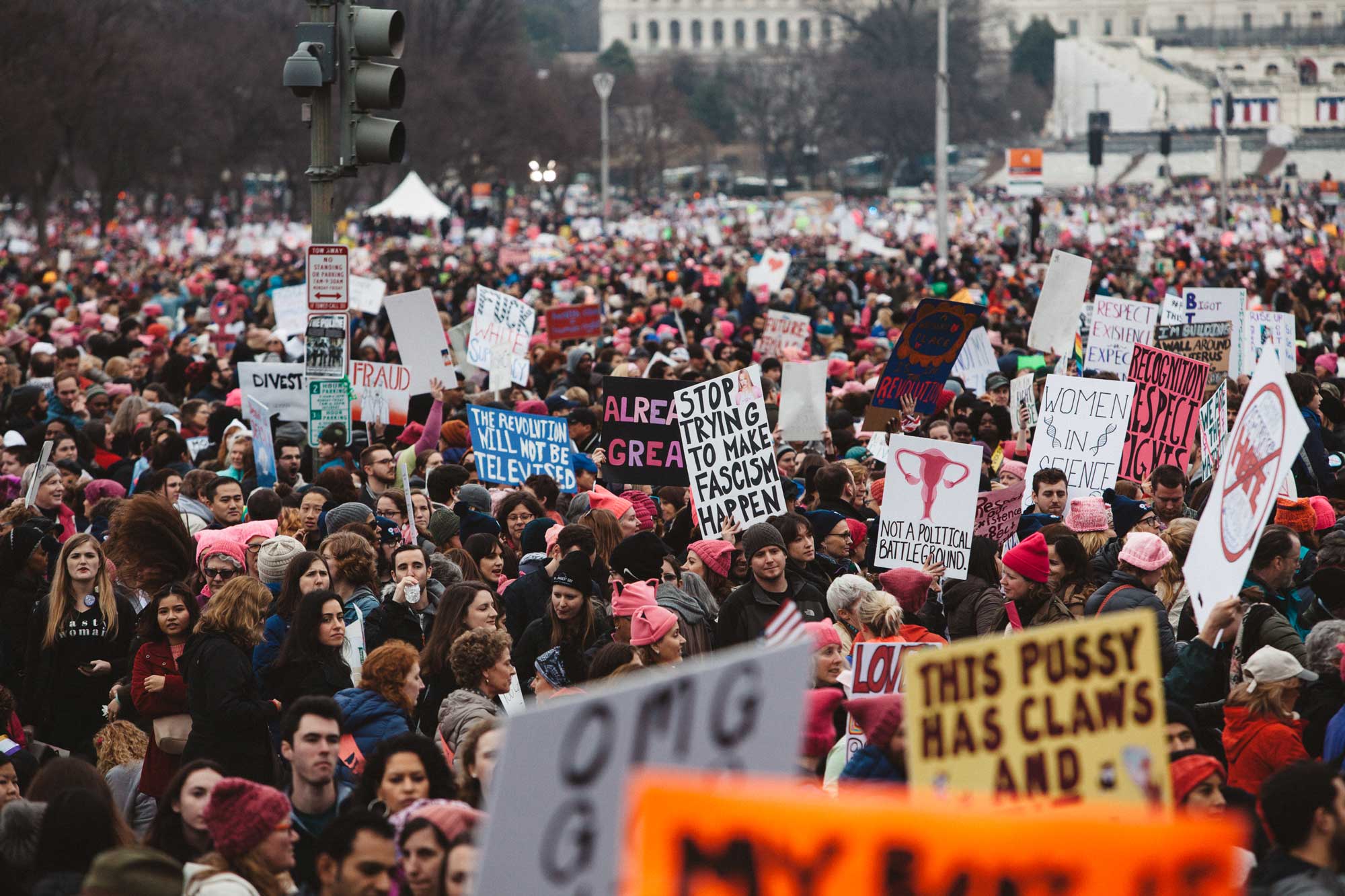The Brazilian military dictatorship—a politically tumultuous period lasting from 1964 to 1985—is mostly known for the government’s numerous crimes and many artists’s countless peaceful protests. The oppressive government lacked democracy, suppressed basic human rights, pervasively censored arts and literature, and persecuted those who opposed the dictatorship, including musical artists.
Singers, such as Caetano Veloso, Gilberto Gil, and Chico Buarque, protested with original songs. Although Brazil’s military tried to censor free speech during the dictatorship, artists still managed to state their opinions and actively fight against the military’s total control through their songs, stories, and art. This activism quickly became the most important method of protest during the regime, unifying sections of the population that the dictatorship’s cruelty and oppression negatively impacted. Now, it is also possible to see the wide cultural impact of those pieces, which serve as long-lasting reminders of history.
History Leading To The Dictatorship
Before the military dictatorship, the economic and political situation in Brazil was unstable. Economic uncertainty marked Joao Goulart’s presidency, which sparked many political and social protests. Eventually, the political situation led the armed forces to stage a military coup on March 31, 1964.
Other countries, including the United States, that feared Brazil was becoming socialist due to its leftward-moving policies quickly supported the new government. Thus, the American press largely ignored reports of political opponents’ mass arrests. Instead, the message was that the new government had successfully defended democracy from communism.
The support from the United States government and the Brazilian middle class ensured the dictatorship’s successful beginning. Military control began on April 1, 1964 with then-military chief Humberto de Alencar Castelo Branco as president. During the dictatorship, democracy was nearly absent due to censorship and political persecution. Infringement of civilians’s constitutional rights and the torture and murder of countless individuals who opposed the regime marked this period. The oppressive government destroyed the right to vote and popular participation, answering all protests against the regime with violence.
One positive outcome of the dictatorship was that it curbed an economic crisis. In the twenty-one years of military control, the economic growth rate was one of the highest in the world. Economic growth helped the regime gain support, even through its most violent phase.
In the early years of the oppressive government, the government killed thousands of Brazilian citizens as a punishment for rebellion. Although most of those kidnapped, tortured, and killed were politicians, a significant number were average citizens who opposed the military regime in both peaceful and aggressive ways.
Caetano Veloso, Gilberto Gil, and Tropicalia
Most Brazilians believe their national identity is closely tied to the country’s music, as it unites those of all social backgrounds and creates a place of refuge from real life. However, as the dictatorship gained more control and became increasingly strict during the mid-1960s, innovation and creativity in art greatly diminished.
One key figure in uprooting this paradigm was Veloso. He aligned with the hippie movement and joined Gil to create a new form of music known as Tropicalia, which artists used to express provocative ideas and politically daring lyrics in a form of peaceful protest. It combined traditional Brazilian culture with various foreign countries’s artistic characteristics. Certain sections of the public found their voice for freedom in the music, while others reacted angrily to the political content expressed in the art of Tropicalia.
From the beginning of his career, Veloso aligned with anti-dictatorship left-wing politics. As a consequence, the government often censored his songs with political undertones. Some of Veloso’s most popular and powerful lyrics are from the song “E proibido proibir” / “It’s Prohibited to Prohibit”:
The virgin’s mother says no / And the television ad / It was written on the door / And the master raised his finger / And beyond the door / There’s the doorman, yes … / And I say no / And I say no to the no / I say: / It is forbidden to forbid.
Veloso wrote this song in 1968 to protest rampant free speech violations. Three months after presenting this song in a university festival, the military arrested him and shaved his head to humiliate him publicly.
Veloso became one of the most vocal protesters of the time. “It’s Prohibited to Prohibit” received a very negative reaction from audiences who were violently opposed to what they saw as the “Americanization” of Brazilian music due to the instruments used and the clothes worn during performances. Among others from the same genre, this song triggered many discussions about what was acceptable in music. Eventually, it showed that a new, more eccentric style could be successful. However, his leftist political views and resounding opposition to the dictatorship eventually led to the government censoring, or even banning, many of his songs.
Gil entered the music industry in 1967 to initially warm audience reactions, but his opposition to the dictatorship meant he also received increased attention from government censors. Like Veloso, he was criticized by the public for elements of his performance. His controversial usage of the electric guitar during concerts, for example, also resulted in more monitoring from the government, as the audience considered the instrument too modern and Western at a time when Brazil rejected other cultures’s musical characteristics. Therefore, his use of the electric guitar along with the new music genre Tropicalia, was a shock to the government and to the audience.
Tropicalia generated more and more attention every day due to Veloso’s eccentric style and Gil’s introduction of a new instrument. Since the two artists were able to make their artistic expression marketable while maintaining a firm opposition to the regime, they became incredibly popular with others with the same political views and established themselves in the music industry.
The government considered Tropicalia an intervention in Brazil’s culture and became increasingly worried about the movement. Because the genre was created to critique the government and was gaining more attention every day, the dictatorship decided to stop its growth by arresting Gil and Veloso in 1969. The government forced both of them to exile in London in the early 1970s. Reportedly, the official reason was that they wanted to break the law and institutional order with messages to the population to weaken the regime.
Gil managed to get the last word in when he released the song “Aquele Abraço,” which he wrote shortly after his release from prison and launched when he had already been exiled. He sings:
Rio de Janeiro is still beautiful / Rio de Janeiro is still / Rio de Janeiro, February, and March . . . My way around the world / I make it myself / Bahia has given me / Ruler and compass / I’m the only one who knows what happens to me / A big hug! / For you who forgot about me / A big hug! / Hello Rio de Janeiro / A big hug! / All Brazilian people / A big hug!
The title of the song can be translated to “That Hug,” referencing a phrase often said by the guards stationed at the prison. In it, he summarized his experiences and what they represented by highlighting both the beauty of Rio de Janeiro, as well as the ugliness hidden behind it. The song went on to become of the most successful in Gil’s career, being the most played and the second most sold of all his discs.
Chico Buarque
Buarque, who is now considered one of the biggest icons in Brazilian culture, was also an extremely important opponent of the dictatorship. He was forcibly exiled in 1968 after the government repeatedly censored his songs.
Buarque wrote many songs that protestors deemed influential to the resistance against the dictatorship. One of his most famous songs is “Apesar de Voce,” which he wrote in 1970 after returning from exile. He sings:
You’re the boss today. / You said, it’s done / There is no discussion / My people walk today / Speaking from the side / And looking down / You invented this state / And invented to invent / All the darkness / You who invented sin / Forgot to invent / The forgiveness / Although you / Tomorrow will be / Other day / I ask you. / Where are you going to hide? / The enormous euphoria / How are you going to ban it? / When the rooster insists / In singing / New water sprouting / And we love each other / Nonstop.
The song addresses the loss of freedom during the dictatorship. It sold one hundred thousand copies and played on the radio often, quickly becoming an anthem for the people. Despite its popularity, the government began to distrust the song’s message, so they ordered the recollection of all compacts sold and prohibited the song from being played on the radio.
His song “Calice” had a similar impact. In a tactic central to the Tropicalia genre, the song used double meanings and wordplay as a clear form of protest against the dictatorship. Notably, Buarque used the word “chalice” due to its similar sound to “cale-se,” which means “be quiet” or “shut up”:
Father, move this chalice away from me / Of red wine of blood / How to drink of this bitter beverage / Swallow the pain, swallow the toil / Even silent the night, there’s the chest / Silence in the city is not heard / What’s worth to me to be the son of the saint / It’d be better to be the son of the other / Other reality less dead / So many lies, so much brute strength.
Buarque’s most heartfelt song was “Angelica,” a song written to honor Zuzu Angel, a famous Brazilian fashion designer who was decidedly against the dictatorship and became a symbol for freedom and expression. The military allegedly arrested, tortured, and murdered her son because he was part of the left-wing movement. Unfortunately, her son’s body was never found, and Angel led an international campaign publicly shaming the government.
One week prior to her death, she went to Buarque’s house and predicted her demise. She left a document which stated that if she died accidentally, it would be at the hands of the same people who killed her son—the military. The song written in her honor is a protest against the military’s aggression and killings, and talks about a woman searching for her son who is now at the bottom of the ocean.
Eventually, the government’s distrust of Buarque led to them banning almost all of his songs. The dictatorship’s strong reaction against any form of criticism shows the true impact music had during that time as one of the most influential and unifying weapons.
Tropicalia’s Power
Tropicalia was a very divisive music genre, especially in its early years. Violent protests from the audience often characterized an artist’s performance. Veloso and Gil, the genre’s two leading artists, would consistently support each other’s music by joining the other on stage. For left-wing protesters, the art was very much loved and used as an example of freedom of speech and expression.
The government arrested many Tropicalia artists for the political content their work expressed. Although Veloso and Gil were only arrested and exiled, others, like Raul Seixas, were tortured.
Tropicalia brought many changes to Brazilian culture. It began as a defiance to Brazilian customs, and brought a rebellious tone to the country’s political situation. The songs were innovative, requiring listeners to have extensive cultural knowledge as writers chose to play with words and use codes to bypass censors. For this reason, many of Veloso’s songs are purposefully vague but carry an important explanation of the oppression and violence he and others suffered during the brutal dictatorship.
Although the definitive number of Brazilians killed during this period is not confirmed, most reports indicate that the military dictatorship killed hundreds of people. Those fighting the dictatorship used Veloso, Gil, and Buarque’s songs as anthems. The passion and fight of artists for free speech are still heard today, with their popular music documenting a very important time in Brazilian history.
During a time of violence, oppression, and censorship, many artists showed their persistence and resistance by finding alternative ways to publish their art. The act of artistic creativity itself—which is fundamental to human nature—became an act of defiance that challenged a military regime that was out to destroy basic human freedoms.



